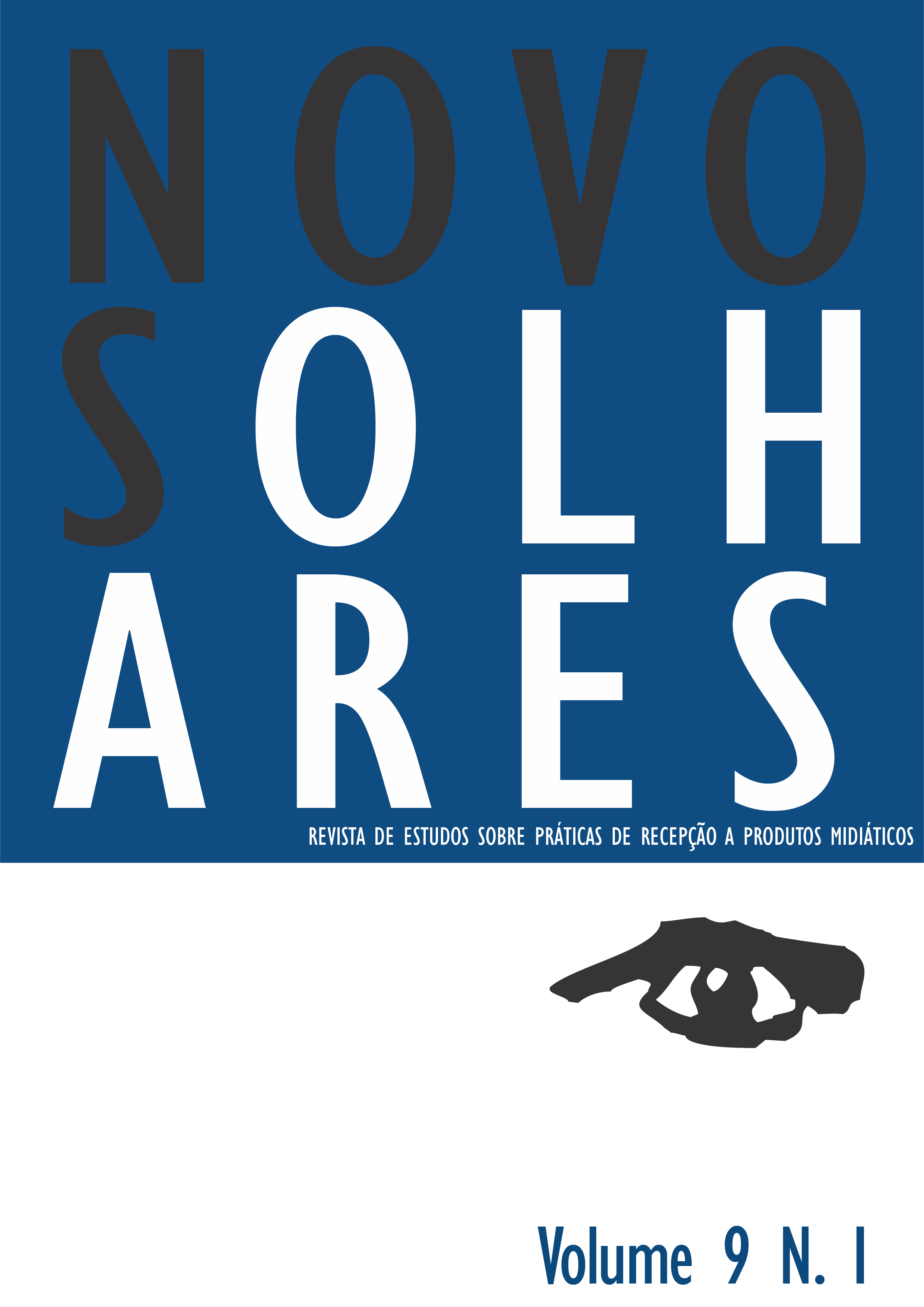The documentary Megalópolis as a vehicle of memory
The American way of life, nationalism and consumption in the modernization of Brazil in the early 1970
DOI:
https://doi.org/10.11606/issn.2238-7714.no.2020.163996Keywords:
Documentary, Nationalism, Consumption, Modernization, MemoryAbstract
The documentary Megalópolis (Leon Hirszman, 1973) discusses the period in which an accelerated modernization began in Brazilian metropolises, specially in São Paulo and Rio de Janeiro in the early 1970s. The film reveals how metropolitan growth should happen in the country linked to the US model with didactic and expository characteristics. Based on the discussion of documentary as a vehicle of memory (Waterson, 2007), we seek to reveal the potential of Megalópolis as a document and historiographical source through three aspects that stand out in it: The American way of life, nationalism and consumption. To this end, we discuss how the fast modernization and irrational urbanization imposed by the military regime are portrayed in a documentary directed by a filmmaker of Marxist beliefs, which reveal the potential for broadening the discussions surrounding this documentary.
Downloads
References
CARVALHAL, F. C. A. Luz, Câmara, Educação! O Instituto Nacional de Cinema Educativo e a formação da cultura áudio-imagética escolar. 2008. Dissertação (Mestrado em Educação), Universidade Estácio de Sá, Rio de Janeiro, 2008.
CHARTIER, R. A história cultural: Entre práticas e representações. Lisboa: Difel, 1990.
GARCÍA CANCLINI, N. Consumidores e cidadãos: conflitos multiculturais da globalização. Rio de Janeiro: Editora UFRJ, 1995.
MARTINS, W. S.; SANGLARD, G. História Cultural: ensaios sobre linguagens, identidades e práticas de poder. Rio de Janeiro: Apicuri, 2010.
NICHOLS, B. Introdução ao documentário. Campinas: Papirus, 2005.
SÁ, S. P. Cultura Material: Gostos e afetos para além da noção de presença. In: MENDONÇA, C. M. et. al. (org.) Comunicação e sensibilidade: pistas metodológicas. Belo Horizonte: PPGCOM UFMG, 2016.
SALEM, H. Leon Hirszman: o navegador das estrelas. Rio de Janeiro: Rocco, 1997.
SCHWARCZ, L. M.; STARLING, H. Brasil: uma biografia. São Paulo: Companhia das Letras, 2015.
SEVCENKO, N. História da Vida Privada no Brasil. Vol. 3. São Paulo: Companhia das Letras, 1998.
WAJNMAN, S. e MARINHO, M. G. Cultura visual e consumo na telenovela Dancin’Days (1978): registros locais de uma transição global. Caligrama (São Paulo. Online), vol. 2, n. 2, [S.i.], ago/2006. DOI: https://doi.org/10.11606/issn.1808-0820.cali.2006.56759
WATERSON, R. Trajectories of memory: documentary film and the transmission of testimony. History and Anthropology (Londres), vol. 18, n. 1, pp. 51-73, 2007. DOI: https://doi.org/10.1080/0275720070121823
Downloads
Published
Issue
Section
License
Proposta de Aviso de Direito Autoral Creative Commons
1. Proposta de Política para Periódicos de Acesso Livre
Autores que publicam nesta revista concordam com os seguintes termos:
- Autores mantém os direitos autorais e concedem à revista o direito de primeira publicação, com o trabalho simultaneamente licenciado sob a Licença Creative Commons Attribution CC Attribution-NonCommercial-NoDerivatives 4.0, que permite o compartilhamento do trabalho com reconhecimento da autoria e publicação inicial nesta revista.
- Autores têm autorização para assumir contratos adicionais separadamente, para distribuição não-exclusiva da versão do trabalho publicada nesta revista (ex.: publicar em repositório institucional ou como capítulo de livro), com reconhecimento de autoria e publicação inicial nesta revista.
- Autores têm permissão e são estimulados a publicar e distribuir seu trabalho online (ex.: em repositórios institucionais ou na sua página pessoal) a qualquer ponto antes ou durante o processo editorial, já que isso pode gerar alterações produtivas, bem como aumentar o impacto e a citação do trabalho publicado.



